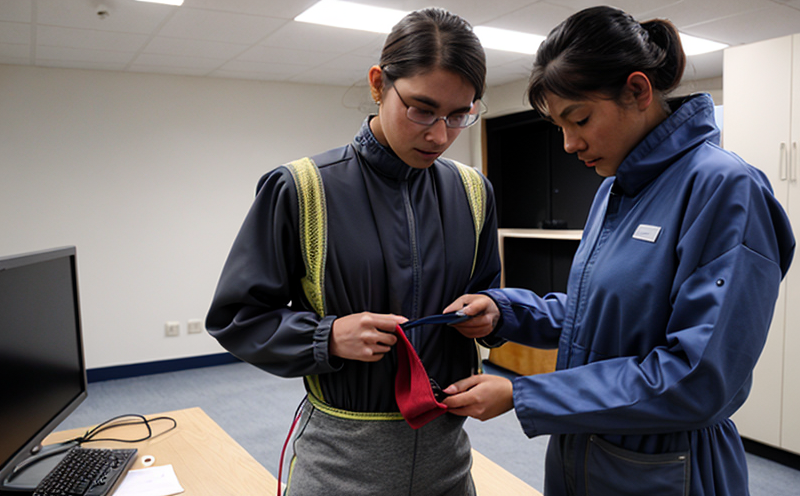Assessment of recycled fibre usage in automotive textiles
The assessment of recycled fiber usage in automotive textiles is a critical service that ensures sustainability and compliance with environmental standards. This test evaluates the percentage of recycled fibers within textile products used for automotive applications, focusing on their performance and durability under real-world conditions.
Automotive textiles are subjected to extreme environmental conditions such as high temperatures, moisture, and mechanical stress. Therefore, it is crucial that any recycled materials incorporated into these textiles meet stringent quality criteria. This service provides a detailed analysis of the recycled fibers' properties, including their durability, tensile strength, tear resistance, and flexibility.
The process begins with specimen preparation, where samples are cut from the automotive textile products to ensure they represent the actual composition of the fabric. The specimens are then subjected to various tests to determine the percentage of recycled fibers. This is achieved by using advanced analytical techniques like near-infrared spectroscopy (NIR), which can accurately identify and quantify different types of fibers present in a composite material.
The instrumentation used for this assessment includes specialized equipment such as Fourier Transform Infrared Spectroscopy (FTIR) for identifying fiber components, scanning electron microscopy (SEM) to examine the surface morphology of recycled fibers, and mechanical testers to evaluate tensile properties. The results are reported comprehensively, providing a detailed breakdown of the recycled content in each sample.
This service is essential for quality managers, compliance officers, R&D engineers, and procurement teams within the automotive sector who aim to reduce their environmental footprint while maintaining product integrity. By leveraging this assessment, companies can make informed decisions about sourcing sustainable materials without compromising on performance standards.
Applied Standards
| Standard | Description |
|---|---|
| ISO 14972 | Environmental management systems for organizations in the automotive industry. |
| ASTM D6883 | Standard test method for determination of recycled content in plastics using near infrared spectroscopy (NIR). |
| EN 12790 | Environmental management systems – Requirements with guidance for use. |
Why Choose This Test
Choosing the assessment of recycled fiber usage in automotive textiles is vital for several reasons. Firstly, it helps ensure compliance with international environmental standards such as ISO 14972 and EN 12790. Secondly, this test enhances the sustainability credentials of automotive products, which is increasingly important to consumers and regulatory bodies alike.
Moreover, by accurately assessing recycled content, manufacturers can optimize their supply chain strategies, reducing costs associated with raw material procurement while maintaining product quality. This service also facilitates innovation in developing new hybrid materials that combine the benefits of both virgin and recycled fibers.
The detailed reports generated from this assessment provide valuable insights into the performance characteristics of recycled fibers under various conditions. These data points are crucial for R&D teams to refine their processes further, leading to more robust and eco-friendly automotive textiles.
Customer Impact and Satisfaction
- Increased market appeal due to sustainable practices.
- Enhanced reputation among environmentally conscious consumers.
- Cost savings through optimized use of recycled materials.
- Better decision-making for sourcing sustainable raw materials.
- Improved product performance and durability.





